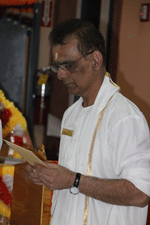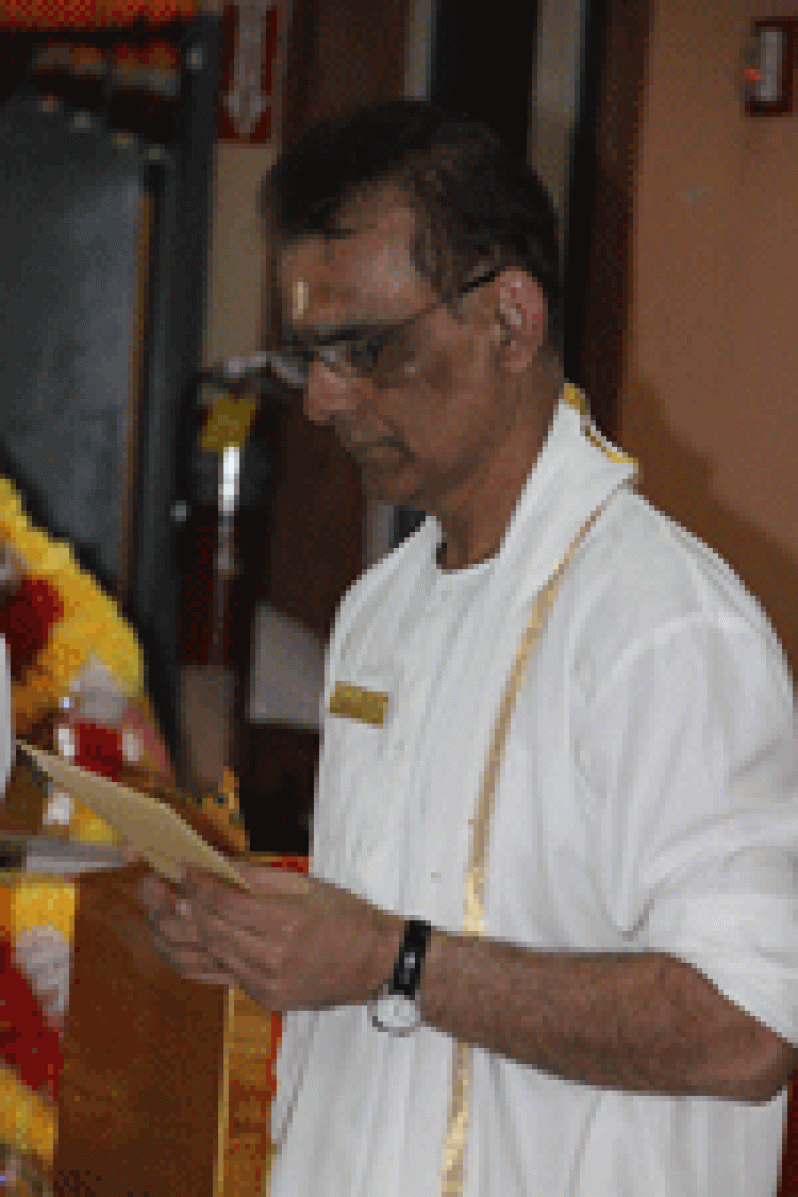(Extract of an interview with Churaumanie Bissundyal, December 2011, Georgetown, Guyana.)
PP: You are one of Guyana’s most versatile writers — poet, novelist, playwright… Quite an achievement! Six novels, five collections of poems, four screen scripts, ten plays, among other bits of writing. But from this point to the point from where you started, there is a huge gap. So, let’s start at the beginning: What gave you the impetus to write? What influenced you to write? Fill in the blank spaces. CB: First of all, I have to say I came from a very small island, Leguan [situated at the mouth of the monstrous Essequibo River]. It is a very beautiful island, with the river roaring all around you…
PP: And the Atlantic Ocean.
CB: Yes, that’s true. Sometimes in the dead of night you feel that you’re sitting in a boat, sailing the ocean because you’re beset by numerous sounds and moods. My family was very poor, humble rice farmers, and, like everybody else in the Essequibo, we grew up in the rice fields. After finishing High School at age 17 or 18, I went into the Hinterland, in the North West District, to work as a Pupil Teacher, and there I spent some three years teaching at various schools — upriver, mid-river, downriver.
PP: Which river are we talking about?
CB: The Barima River. The place was very, very naturally beautiful; the trees, the things in the trees, the birds… different from where I came. For a young man to get there in such a beautiful, aesthetically beautiful environment, it was a spiritual awakening. And I started right there to write; to compose. Here, the urge to write woke up.
PP: What I am getting here is that the environment played a chief role in stimulating your writing.
CB: Definitely. And apart from that, there were other factors like the fact that my family members were ardent readers of the Valmiki and the Tulsidas Ramayana, the Mahabharat…
PP: Very important influences. It is important if you want to write well, you must be well-read.
CB: Right. So that was one aspect. Then there was the whole philosophy of poetry. If you read the Tulsidas Ramayana, the poetry is all about beauty and nature; that’s where Tagore got his influence. When I came out back from the hinterland, I started to teach at the Hindu College at Cove and John [East Coast Demerara], and there I started to write fiction.
PP: Not poetry?
CB: Fiction; practising fiction; writing a first novel, ‘Blossoms of Love’. Not a very good novel; never published. It was an attempt to express myself. Later, I turned to playwriting. Visited the Corentyne [Berbice] and returned to Georgetown, where I wrote ‘The Trick and the Rajah’, which was staged here. Then, ‘From Ganges to Demerary’, which was staged in Toronto.
PP: Another influence I’m seeing here… The influence from where we came; your ancestors from India.
CB: Right! Petamber, the thing that really puzzled me was why I am here. I used to go to the Indian movies and observe all the mannerisms of the people, and the state of places and the culture, but found no answer to the questions: Why I am here; why and how my foreparents left India? That came out in my writing.
PP: Your second collection of poems, ‘The Cleavage’, a long poem…
CB: That’s the one wherein I did an internal journey; the whole journey: My ancestral journey from India to British Guiana to find out why I am all of this; all of what I am today. That was a searching poem; a searching work.
PP: Have you found anything through your writing?
CB: I found myself; I found the beauty of my parents. I found how we could live ethnically in Guyana as one. I found a link back to my ancestral past, because inside of you; and you would find this in my dissertation for my Ph. D. All of this came our clearly; very, very clearly, because I was searching and searching and searching for something: Why I am here; why this is happening etc. In ‘The Cleavage’, I wrote Anglo-Sanskrit poetry. Later I also wrote Sanskrit poems, all of which helped me to discover my deep interior self. It was also psycho-therapeutic. Sigmund Freud and Karl Jung discussed this very extensively; that we have many, many selves. And I had to come to term with these inner selves.
PP: Still talking about influences on your work: 2011 marks the 150th birth anniversary of Rabindranath Tagore. His influence on your work…?
CB: Let me tell you this: Our background was purely Brahmanic. The culture of my parents were sort of Vedantic, and Vedantic culture deals with Tagore. If you read Tagore’s ‘Gitanjali’, he was searching for this universal spirit called the Brahman. Not the caste system; the universal spirit: The whole world is One. So, when he was praying, he was asking for nothing else but peace, beauty and tranquillity. There must not be hate; only love. The whole world is love; the whole world is One. But people coined the differences because of Maya.
PP: Because of this Oneness, people everywhere were able to relate to his poetry.
CB: Yes! There is that deeper meaning. **I was quite familiar with that philosophy because that was what my parents were preaching at home all the time – the world is one.
So my work was deeply influenced by Tagore.
What’s Happening
• ‘Literature on Television’, comprising of ‘Oral Tradition’ and ‘Between the Lines’, is celebrating its 10th anniversary with the rebroadcast of some signal features including copyright, cultural industries, literary criticism, reading for pleasure, writers workshops, editing, and preparing manuscripts for publication (and literary prizes). Both programmes are aired on NCN; ‘Oral Tradition’ is on Wednesdays at 2035 hours and ‘Between the Lines’ – first Sunday each month at 2100 hours.
(To respond to this author, either call him on (592) 226-0065 or send him an email: oraltradition2002@yahoo.com)



.jpg)









